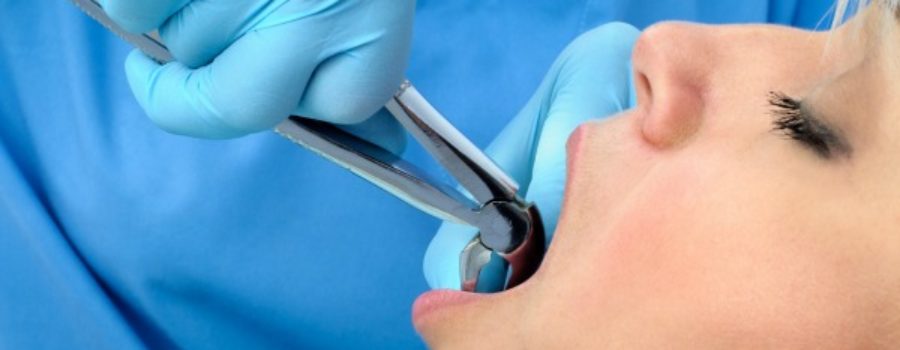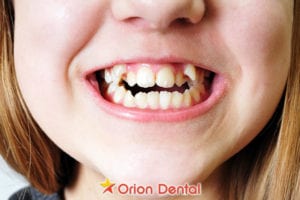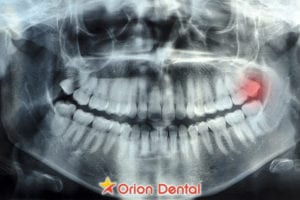Why would someone have to have a wisdom tooth extracted when they are in their 40’s?
If you are having oral health problems because of wisdom teeth, you should have them removed. If you are not, you can probably leave them alone. This is definitely something you will want to discuss with your dentist.
What do we mean by oral health problems caused by wisdom teeth?
- If they are impacted and causing pain – when they grow in, they can disrupt the molars they sit next to, causing root pain and crowding or even wearing down the enamel on adjacent molars. This, however, would in all likelihood be noticed much earlier than age 40.
- They have cavities and are causing pain – this is a possibility with wisdom teeth that have grown in without crowding and therefore never removed at a younger age. Wisdom teeth that are left are prone to cavities because of their difficult to clean and access positioning. Adding a filling to a wisdom tooth can actually make the situation worse. How? The filling itself could encourage the development of more cavities, again, because the wisdom teeth are in the hardest to reach area for cleaning. It’s more effective to have them removed in this case.
As with all dental procedures that require a healing process, the younger and healthier you are, the faster your recovery time but it’s certainly manageable at any age and not something that should prevent you from getting the appropriate treatment.
If I do have my wisdom teeth out, how should I care for extraction sites?
Stitches are put in place, which will dissolve on their own after a period of several days. After a period of 24 hours, you can begin rinsing with salt water and eating soft foods. These are the two primary tips for caring for the extraction site. That and get a little rest – there might be some bleeding and swelling, both of which will improve by limiting your physical exertions for a few days.
Above everything else, you want to avoid what is known as ‘dry socket’ (alveolar osteitis). Basically, post-extraction, a blood clot forms at the site which serves to protect the bone and nerve endings in the empty socket. If this clot disappears before the opening has healed, the bone and nerves will be exposed and cause significant pain. To that end, you should avoid using a straw to suck liquids, smoking, eating hard foods or touching the area at all.
Waiting to deal with an impacted wisdom tooth can just end up being painful and even dangerous. Don’t wait. If you suspect that you or someone in your family has an impacted wisdom tooth/teeth, come in and see us. We have dentist offices in both Milton and Scarborough, both with evening and weekend hours, so give us a call today at our Milton dental office at (905) 636 – 9770 or at our Scarborough dental office at (416) 291 – 0306. Give us a call to book an appointment and let’s get started!







